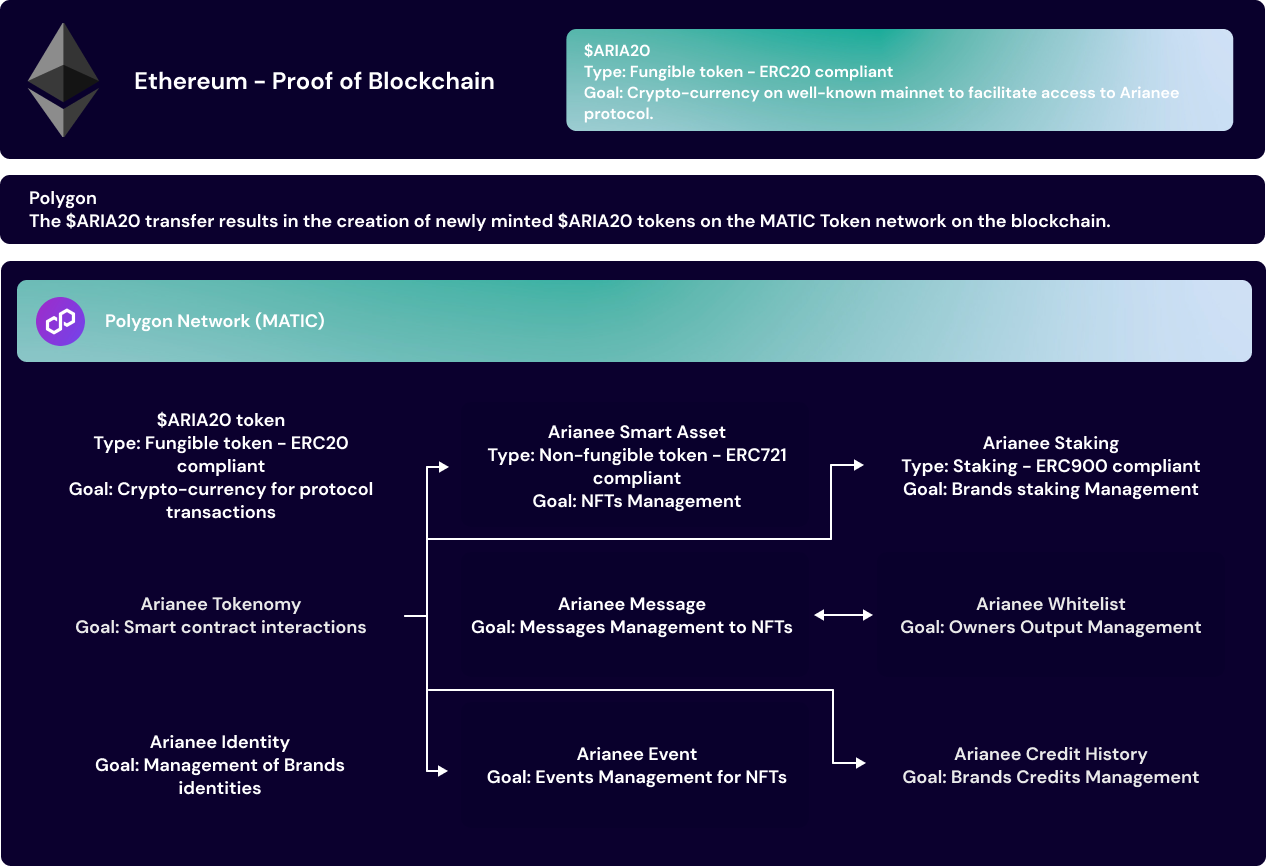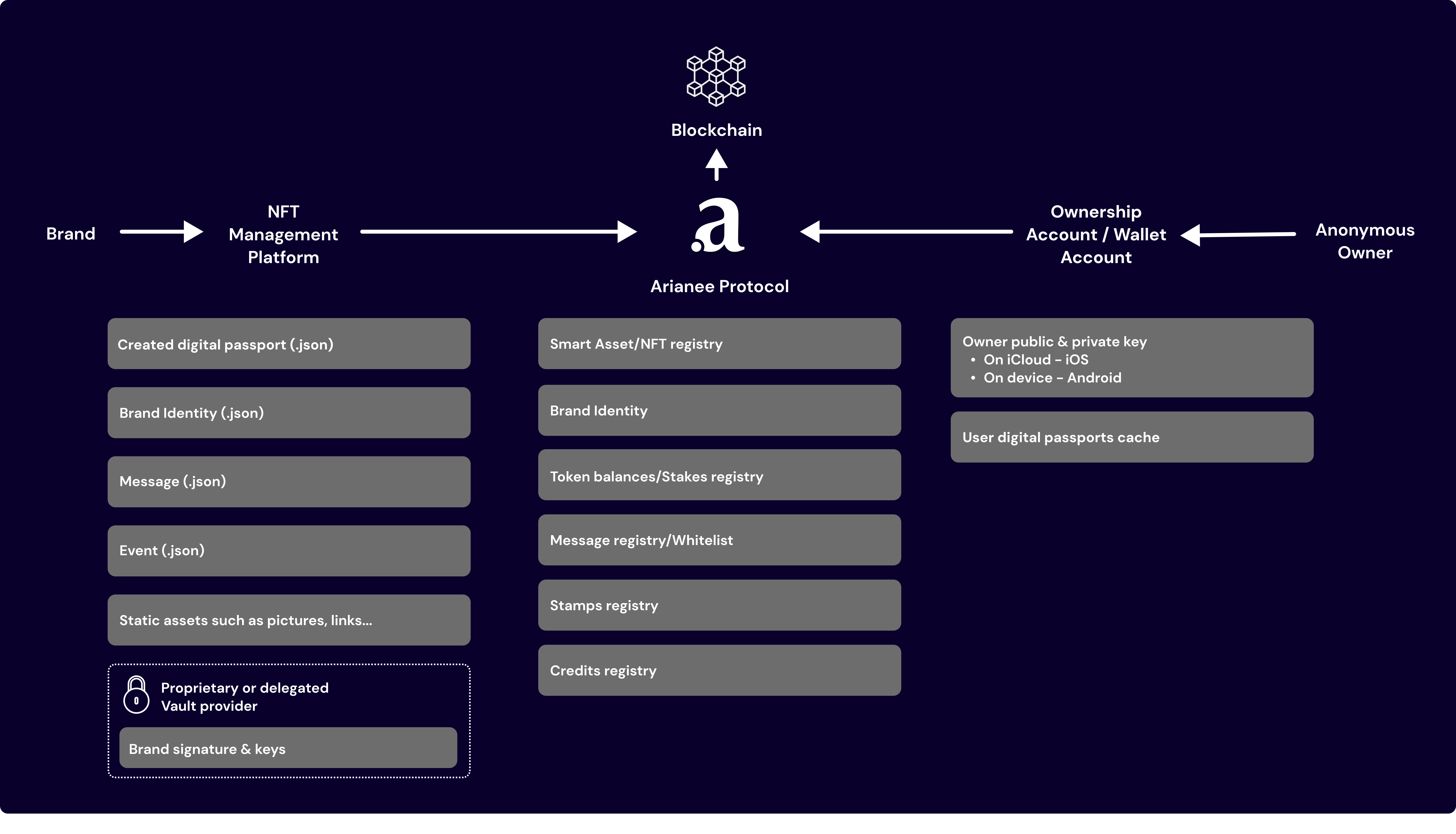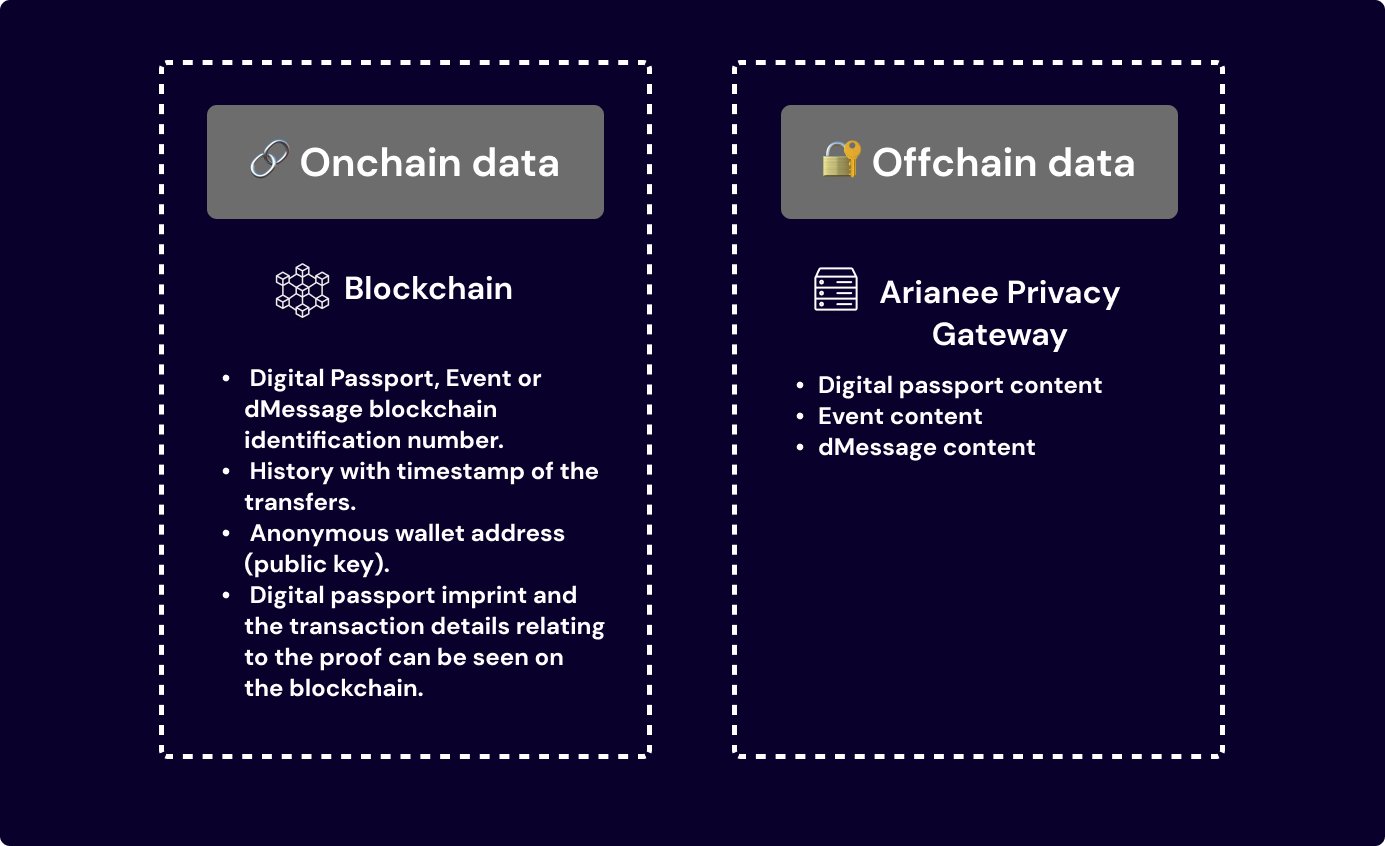Decentralized Platform
What is a decentralized platform?
In the Blockchain context, a decentralized platform means that there is no centralized data storage mechanism. The information is available to all the participants on the blockchain.
From a system design perspective, there are nodes instead of a client server.
Blockchains
The protocol was deployed for the first time in 2019 on the POA network, sub-chain of the Ethereum blockchain. The price of transactions is cheaper and more stable on the POA network than the Ethereum main Blockchain. The time to validate transactions is also lower.
Then arrived Polygon, a similar network that aims to create a larger ecosystem and in such the possibility to connect to sites like Opensea.
For more information on networks, see Blockchains list.
Please note that new projects are no longer run on POA blockchain since V1.5 release. For more information about V1.0, see the related documentation.
What is a smart contract?
A blockchain smart contract is a collection of code — its functions — and data — its states — recorded on a specific blockchain address. Smart contracts are self-executing and render transactions traceable and irreversible.
What is a smart asset?
An NFT smart contract on the Ethereum blockchain creates a list of owned items, known as smart assets. The Arianee protocol uses such contracts.
To ensure interoperability and adoption, Arianee designed its NFTs (Arianee Smart Assets) to comply with the ERC-721 Token Standard and its $ARIA20 token with the ERC-20 Token Standard.
Using the Solidity programming language, multiple smart contracts were created, making the Arianee protocol compatible with any Ethereum blockchain.

Data Storage
The Arianee protocol never requests, stores or uses the personal data of digital passport owners. Ownership is attached to a wallet public key. Owners are anonymous when using the Arianee protocol.

The NFT, event, or message content can be stored on any server, usually, the brand's server hosting the NFT Management Platform.
Stakeholders with the right permissions can access the information and digital passport content if:
- They have access to the blockchain.
- They provide the owner's secret keys or the Arianee tag on the product to unlock the content.
- The links within the digital passport point to active content.

Data Recovery
Arianee Protocol
Data from the Arianee protocol stored on a specific address on a blockchain can be:
- Read and/or enriched if and only if a set of cryptographic keys, including the public key but excluding the private key of this address, is provided.
- Transferred if and only if the private key of this address is used in a signed transaction. There is no recovery if the private key cannot be used for signing.
NFT Management Platform Provider
Data stored can be updated and recovered according to its policy.
- Platform's data updates may lead to an authentication failure of digital passports.
- When the links within the digital passports do not point to active content anymore, owners will not have access to this content.
- Vault breach may lead to the hack of your brand's private keys, leading to the misuse of features available.
Wallet Provider
Data stored can be recovered according to its policy.
→ Owners should save in a secure place the 12 mnemonic words given by their wallet app.
→ Builders must have access to the wallet public key for the digital passports created. These keys are stored on your NFT Management Platform.

- Key stretching function
- One-way hash function
- Recovery of the owner’s wallet depends on the wallet provider ability to safely save the private keys or to give the user a way, such as mnemonic words, to recover their private keys in case of the loss of the wallet.
- Wallet breach may lead to the hack of the owner's private keys, leading to the misuse of the user's digital passports.
Digital Passport Authenticity
To issue authentic digital passports, the Arianee protocol provides tools based on three criteria:
- Verified Identity - You will go through the KYB process to be registered by the Arianee Association as a verified brand on the Arianee Identity Smart Contract.
- Authentic Identity - Your identity used to issue the digital passport is the same as the one verified by the Arianee Association.
- Authentic Digital Passport - The digital passport content remains unchanged since its issuance.
Updated 10 months ago
